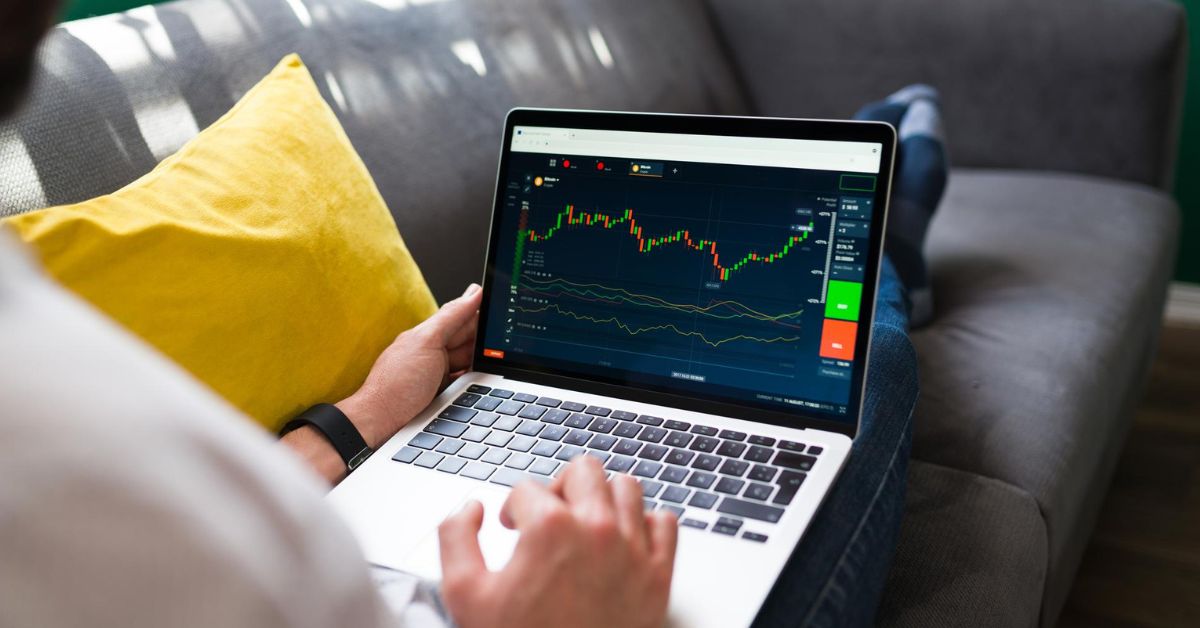People who are new to trading and even experienced traders are always looking for the best strategy. They study charts, analyze market trends, and develop complex algorithms. Despite their best efforts, they often overlook one key factor that could make or break their success: psychology. This is where the often-quoted idea that”Is trading 70% psychology” comes into play.
Mental and emotional factors play a significant role in a trader’s overall performance, but they’re often overlooked. The Prime XBT platform provides the best tools and resources at your fingertips and helps you balance your psychology while trading cryptocurrencies. So, join PrimeXBT today! Use promo code PRIMEOTT to receive a +7% bonus on your deposit.
In this article, we will explore whether trading 70% psychology and its impact on trading outcomes. This session will cover psychological factors that affect trading decisions and practical tips for developing a successful mindset. Let’s dive in.
What is Trading Psychology?
Trader psychology refers to the emotional and mental aspects that influence their behavior and decisions. It encompasses how traders manage their emotions, maintain discipline, and respond to market fluctuations.
Fear, greed, overconfidence, and loss aversion are some of the factors that can influence decision-making. Trading psychology helps traders navigate their emotional responses and make rational decisions so they can develop effective strategies and achieve long-term success.
The Importance of Psychology in Trading

Trading psychology describes how traders make decisions based on their mental and emotional states. In volatile markets, managing emotions, maintaining discipline, and staying resilient are essential, but technical analysis and market knowledge are important, too.
It’s easy for traders to make impulsive decisions when emotions like fear and greed cloud their judgment. Reading charts isn’t enough to be successful; you have to control how you react to them.
Numerous studies emphasize the significance of psychology in trading. For example, investors often sell winning stocks too soon and hold onto losing ones too long based more on psychology than strategy. This behavior highlights how emotions can disrupt even the most well-planned trades.
Top traders like Paul Tudor Jones and Ray Dalio emphasize the importance of psychological discipline. Jones famously stated, “The most important rule of trading is to play great defense, not great offense,” reflecting the need for emotional control and strategic restraint. Ultimately, trading successfully depends on mastering psychology.
Managing your emotional state will help you remain consistent and disciplined even during difficult market conditions.
Is Trading 70% Psychology?
It’s often said that trading is 70% psychology and 30% strategy because a trader’s mindset has more impact on success than technical knowledge alone. Without the right psychological approach, market analysis, strategy development, and risk management aren’t enough.
Emotions like fear, greed, overconfidence, and doubt often influence trading decisions, resulting in mistakes like exiting trades too early or holding onto losing positions after missing a move. Staying disciplined while navigating these emotions can make a big difference in trading success.
Cognitive biases are another reason psychology is considered crucial in trading. These biases, like confirmation bias (favoring information that supports your beliefs) and loss aversion (fearing losses more than valuing gains), can distort a trader’s perception of the market and cause him to make poor decisions.
For example, a trader might hold onto a losing position longer than necessary, hoping for a reversal that aligns with their predictions. Emotional attachments to trades and psychological factors may cause significant losses.
Even though psychology is undeniably essential, strategy and technical analysis aren’t secondary. Most successful traders strike a balance between a robust strategy and a strong psychological discipline.
Having a good trading plan is crucial, but sticking to it, especially in volatile markets, takes psychological resilience. Because of this, many experts say that trading is 70% psychology, but it’s a combination of mind and strategy that makes all the difference.
Key Psychological Factors Influencing Trading Success

Achieving consistent success in the markets requires understanding the psychological factors that influence trading decisions. Emotions like fear and greed can affect decision-making, causing impulsive actions that deviate from established strategies. The more you understand and manage these psychological influences, the better your trading performance will be.
Fear and Greed
Fear and greed are two of the most powerful emotions that can influence trading decisions. The fear of loss often makes traders exit positions prematurely or avoid taking necessary risks. This emotional response can lead to missed opportunities and suboptimal trades.
In contrast, greed can lead to overtrading and holding on to winning positions for too long, hoping for even more significant gains. A successful trader recognizes these emotions and implements strategies to manage them, such as setting predefined entry and exit points on the basis of analysis.
Discipline and Patience
Discipline and patience are essential traits for successful traders. Having a well-defined trading plan helps maintain discipline, but sticking to that plan, especially during turbulent markets, is the hard part.
Traders who have patience can wait for the right opportunities instead of reacting impulsively. Consistent practice and setting realistic goals aligned with one’s trading strategy will help cultivate this discipline.
Overconfidence and Loss Aversion
When traders are overconfident, they think they have a foolproof strategy or can predict market movements accurately. This overestimation of one’s abilities can result in significant losses.
Conversely, loss aversion can make traders hold onto losing positions in hopes of a turnaround, making them reluctant to cut losses. These two psychological tendencies can have a significant impact on trading, reminding us how vital self-awareness and emotional regulation are.
Stress
Trading can be stressful, and high levels of stress can impair decision-making. Stress may arise from market volatility, financial pressures, or the emotional toll of losses. Stress management techniques such as mindfulness, regular breaks, and physical exercise can help traders remain focused and clear. Traders who incorporate stress management into their routines can improve their performance and make more rational decisions.
Practical Tips for Improving Trading Psychology
Trading psychology is a crucial component of long-term success in the markets. Implementing practical strategies will help you cultivate a disciplined mindset, enhance emotional control, and make better trading decisions. These tips will help you develop the psychological resilience you need to thrive as a trader.
Developing a Trading Plan
The key to mitigating the emotional aspects of trading is to create a well-defined trading plan. The plan should outline your trading goals, strategies, risk tolerance, and criteria for entering and exiting trades.
When you have a structured approach, you can reduce impulsive decisions and stick to your strategy. Regularly reviewing and updating your trading plan will also help you stay focused and adapt to market changes.
Mindfulness and Mental Training

When you incorporate mindfulness into your trading routine, you can significantly enhance your psychological resilience. Mindfulness techniques like meditation and deep breathing can help you develop self-awareness and emotional control.
Mindfulness can help you recognize and manage your emotional reactions to market fluctuations so you can make more objective decisions. Mental training, like visualization or affirmations, can also boost your confidence and keep you calm.
Routine and Consistency
Establishing a daily trading routine can foster consistency and reduce anxiety. A structured routine includes setting aside specific times for market analysis, trade execution, and performance review.
Consistency in your approach can lead to better decision-making and emotional stability. Maintaining a balanced lifestyle – that includes physical activity, healthy eating, and enough sleep – will help you cope with trading’s emotional demands.
Continuous Learning and Adaptation
Financial markets are dynamic, and successful traders understand the importance of continuous learning. Keeping up with market trends, new strategies, and psychological insights can help you improve your trading.
To expand your knowledge, read books, join trading communities, and attend webinars. A growth mindset will make you more resilient in the face of challenges and help you navigate trading’s complexities.
FAQs
How does fear affect trading decisions?
When traders are afraid, they can make impulsive decisions or hesitate when making trading decisions. It’s usually a fear of losing money that makes traders exit positions too soon or avoid taking risks.
This emotional response can result in missed opportunities and suboptimal trades. Managing fear and cultivating emotional discipline are essential for long-term success and rational decisions.
What role does discipline play in trading?
Trading requires discipline because it helps traders stick to established strategies and avoid impulsive decisions. Disciplined traders follow a well-defined trading plan, including entry and exit points, risk management, and position sizing. Discipline helps traders navigate market fluctuations with confidence, leading to better decisions and better overall performance.
Can psychology be trained or improved?
Yes, trading psychology can be trained and improved through various techniques. Mindfulness, meditation, and visualization can help you control your emotions and be more aware of yourself.
Further, developing a structured trading routine and setting realistic goals can encourage discipline and resilience. Through continuous learning and reflection on past trading experiences, traders can make more rational decisions in the markets.
Conclusion
Ultimately, understanding the psychological aspects of trading is vital to success. It’s easier to stick to your strategy when you recognize and manage emotions like fear, greed, and overconfidence. So, are you tired of losing money due to panic selling, FOMO, overtrading, and bag holding?
We recommend Vestinda, a trading app that uses automated crypto trading strategies to eliminate emotional decision-making. Experience a more disciplined trading approach and improve your overall performance today!



